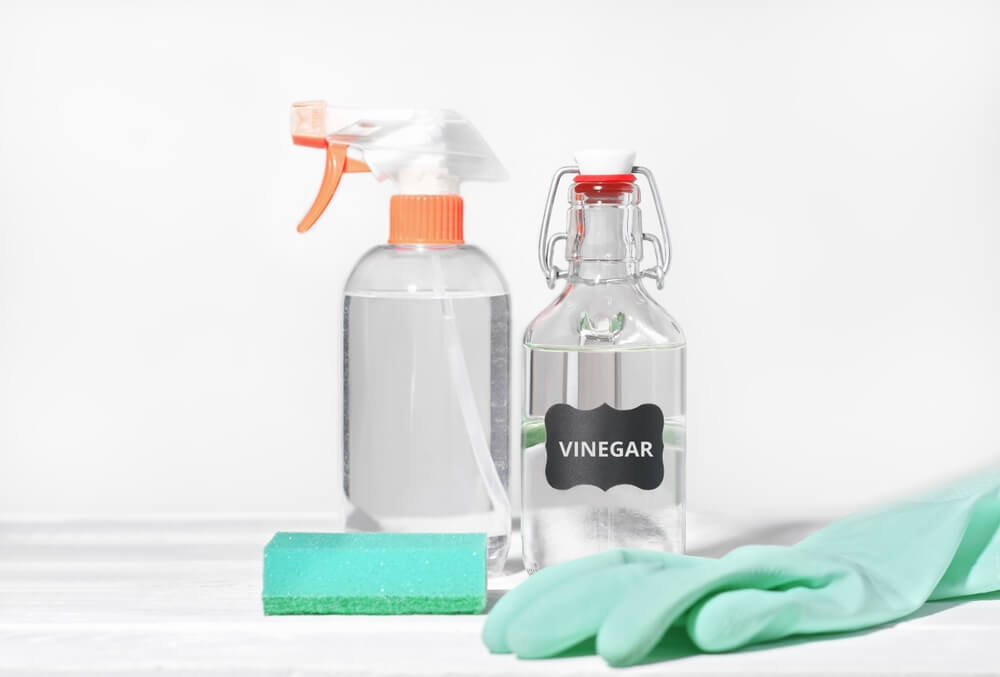That funky smell emanating from your laundry room? It might not be dirty laundry. It could be your washing machine needing a good scrub. From mustard stains to mysterious muck, our washing machines have seen it all - and it's no wonder they can get a little grungy over time. But with a few easy cleaning steps, you can restore your machine's former glory, and enjoy fresher, cleaner laundry to boot.
Your washing machine cleans things, but it doesn’t clean itself. Like any appliance dealing with water and grime, washing machines need regular cleaning to prevent soap scum, mineral deposits, and mold.
We expect our washing machines to clean dirty laundry. But what happens when the machine gets dirty? Over time, detergent residue, fabric softener, minerals from the cold water, and clothing fibers accumulate.
A creeping film develops, sapping your cleaner's potency, radiating unpleasant aromas, and taking a toll on delicate components. Regularly cleaning your washing machine is essential.
Cleaning your washing machine doesn't have to be a daunting task. There’s a cleaning approach for every machine. A systematic method makes cleaning a manageable monthly chore.
The process differs slightly for top-load and front-load machines. With a little TLC, your washing machine can perform like new. This handy guide reveals the secrets to maintaining your trusty appliance, banishing worries about costly repairs.
Top-load washers usually dry better than front-loaders, making them less prone to mold and mildew. Whip out the hot water, vinegar, and baking soda, and get ready to blast away dirt and grime. The detailed process is explained below.
Don't worry about mixing certain cleaners. They're added separately during the cleaning cycle.

Front-loaders trap moisture because of their airtight seals. Mold breeds in the absence of elbow grease, so grab a sponge and get to work - regular cleaning is non-negotiable.
Monthly, spray the inside drum, especially the rubber gaskets, with distilled white vinegar. Wipe clean with a microfiber cloth. Here’s a five-step guide for a deeper clean.
Gather white vinegar, baking soda, a microfiber cloth, and an old toothbrush.
Set your washing machine to the hottest water setting and highest level.
Add two cups of white vinegar and start a normal wash cycle. When the drum is full, pause the cycle to let the vinegar soak. Then, restart the washer.
When the rinse cycle begins, add one cup of baking soda to the drum. Restart the washer.
Scrub the gaskets with an old toothbrush and baking soda. Wipe clean with the microfiber cloth. Leave the washer door open to air dry.
Even clean machines have issues. Before calling for washing machine repair, troubleshoot with these tips. A longer machine lifespan is within reach - just fix these frequently occurring problems.
If odors remain after cleaning, run an empty hot wash cycle with a cup of chlorine bleach. For lingering smells, wipe the gaskets to remove odor-causing residue.
A clogged drain hose prevents proper draining. Check the hose for kinks and blockages. A quick scan now saves hours of frustration later.
Considering a new washer? Whether to rent or buy depends on your lifestyle and living situation. Every avenue has its high points and low points. Evaluate which choice suits your needs.
Renting might be suitable for those in temporary housing. Buying is a bigger commitment, usually better for homeowners.
Maintenance, including regular cleaning, extends your machine's life. Consider washing machine repair resources before replacing the machine. Foster a smooth-running washer by cultivating some basic habits.
Use the Right Detergent: Avoid excess detergent, which leaves residue and can damage the machine. The perfect storm for mold growth is created, which translates to more time spent on cleaning duties.
Level Your Machine: A level machine minimizes vibrations and reduces wear and tear on parts.
Clean the Lint Trap (if applicable): This prevents lint buildup, which can cause odors and fire hazards.
Leave the Door Ajar: This helps prevent mold growth in front-loaders.
Natural solutions offer a gentler yet effective way to clean your washer. Chemical-free is the way to be, and that's exactly what you get with these.
Detergent residue doesn't stand a chance when you combine hot water and vinegar - it's a vigorous combo that tackles mildew like a pro. With baking soda, the cleaning process gets a boost of freshness.
The choice between a top-load and front-load washer depends on preference. Each type has different cleaning needs, but both provide clean laundry.
Feature | Top-Load Washer | Front-Load Washer
|
|---|---|---|
Cleaning | Less prone to mold | Requires regular gasket cleaning |
Efficiency | Uses more water | More energy-efficient |
Cost | Generally less expensive | Can be more expensive |
When choosing a machine, consider your laundry habits, budget, and available space. Regular maintenance, like keeping hoses clear, prevents issues.
Cleaning your washing machine, whether top-load or front-load, is straightforward. A quick tidy now and then keeps your machine fresh,stops nasty smells, and gives it a longer lifespan.
Take these tips to heart and kiss those costly repair bills goodbye – you'll be thrilled with the extra time and peace of mind you'll gain. Add cleaning your washing machine to your monthly appliance maintenance routine.